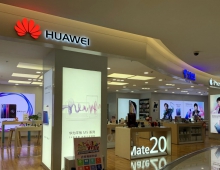
iPhone's Mobile Advertising Platform Could Lock Out Google's AdMob Plans
Google said on Wednesday recent changes to Apple's developers agreement would cripple Google's advertising tools for the iPhone, creating "artificial" barriers to competition.
Apple proposed new developer terms on Monday. According to the founder of mobile ad company AdMob, Apple's developer terms would prohibit app developers from using AdMob and Google?s advertising solutions on the iPhone. Google paid $750 million for AdMob. The FTC approved it last month, saying Apple's entry into the mobile ad market would increase competition.
"These advertising related terms both target companies with competitive mobile technologies (such as Google), as well as any company whose primary business is not serving mobile ads, Omar Hamoui, founder of mobile ad company AdMob, said in a blog post. "This change threatens to decrease - or even eliminate - revenue that helps to support tens of thousands of developers. The terms hurt both large and small developers by severely limiting their choice of how best to make money. And because advertising funds a huge number of free and low cost apps, these terms are bad for consumers as well," Hamoui added.
Hamoui also said that artificial barriers to competition hurt users and developers and, in the long run, stall technological progress.
Google plans to speak to Apple to express their concerns about the impact of these terms, Hamoui added.
AdMob has disclosed that roughly one-third of the ads it served in April were for devices running the iPhone platform.
Apple's latest iPhone developers agreement allows user data to be transmitted only to "an independent advertising service provider whose primary business is serving mobile ads," one that is not affiliated with "a developer or distributor of mobile devices, mobile operating systems." This would bar Google, which is developing the Android mobile operating system.
"These advertising related terms both target companies with competitive mobile technologies (such as Google), as well as any company whose primary business is not serving mobile ads, Omar Hamoui, founder of mobile ad company AdMob, said in a blog post. "This change threatens to decrease - or even eliminate - revenue that helps to support tens of thousands of developers. The terms hurt both large and small developers by severely limiting their choice of how best to make money. And because advertising funds a huge number of free and low cost apps, these terms are bad for consumers as well," Hamoui added.
Hamoui also said that artificial barriers to competition hurt users and developers and, in the long run, stall technological progress.
Google plans to speak to Apple to express their concerns about the impact of these terms, Hamoui added.
AdMob has disclosed that roughly one-third of the ads it served in April were for devices running the iPhone platform.
Apple's latest iPhone developers agreement allows user data to be transmitted only to "an independent advertising service provider whose primary business is serving mobile ads," one that is not affiliated with "a developer or distributor of mobile devices, mobile operating systems." This would bar Google, which is developing the Android mobile operating system.





















